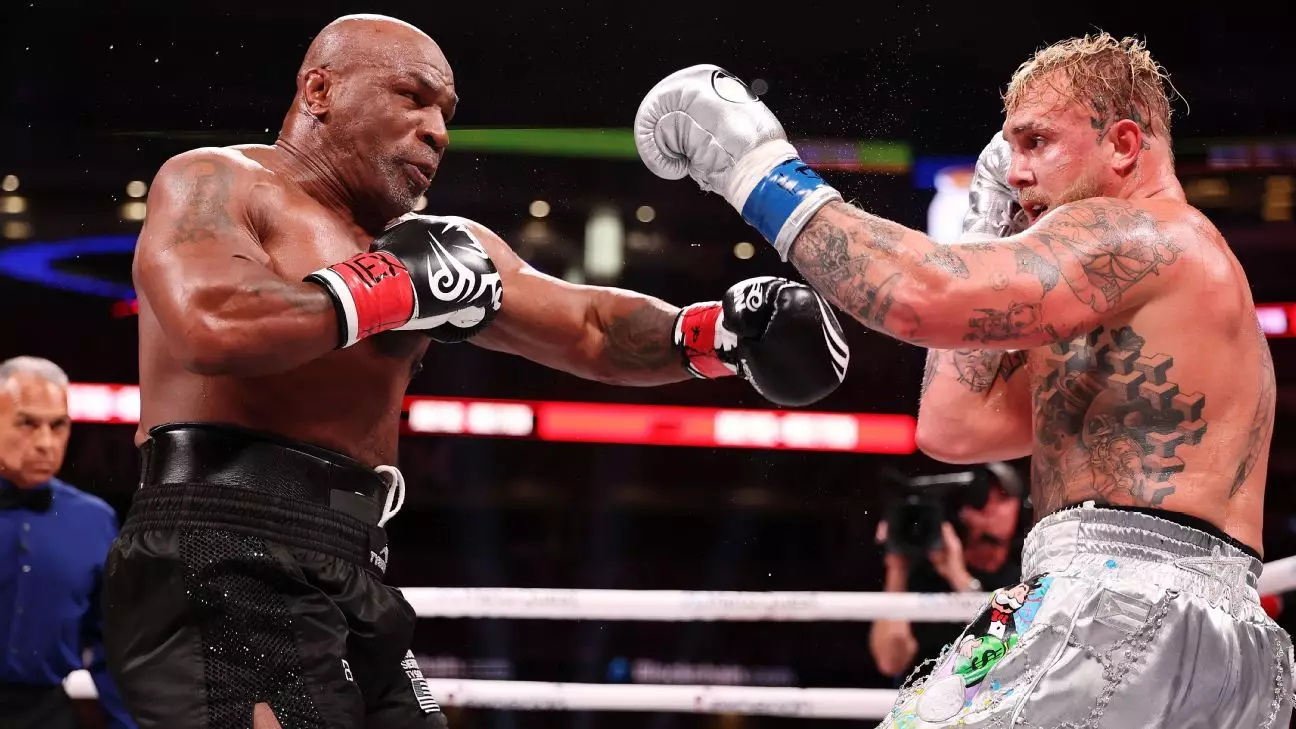In recent years, Jake Paul has shifted from being a controversial social media figure to claiming a prominent position within the boxing world. The ongoing debate surrounding whether he is a “real” boxer often overshadows his undeniable ability to attract massive audiences. However, the true mark of his influence is observed not through traditional boxing accolades but rather through the financial and viewer engagement metrics that have emerged from his high-profile events.
Jake Paul’s recent unanimous decision win over boxing legend Mike Tyson at AT&T Stadium was not just another fight; it represented a seismic shift in how boxing events can be marketed and consumed. This match, paired with the highly anticipated co-main event featuring Katie Taylor versus Amanda Serrano, achieved unprecedented success, drawing over 72,300 fans. The event generated $18.1 million in revenue, setting a record that redefined what is possible for combat sports events outside of Las Vegas.
The financial success of the event speaks volumes about Paul’s drawing power, prompting discussions about the changing landscape of boxing. The hungriest boxing purists may bemoan the influence of social media stars, but it is difficult to ignore the crowds and revenue these fighters can attract.
The partnership between Paul’s Most Valuable Promotions and Netflix was intriguing. Although the streaming service experienced technical difficulties during the event, it was indicative of the growing interest in live sporting events on streaming platforms. Netflix reported that 60 million households tuned in, making this broadcast one of their most extensive live sports initiatives to date. This event also significantly impacted Netflix’s stock prices, which saw a 2.8% increase following the success of Paul-Tyson, illustrating how lucrative live sports can be for streaming services.
Moreover, Netflix seems eager to build on this momentum. The announcement of more events, including the performance by Beyoncé at the NFL’s Christmas Day game and the debut of WWE’s “Monday Night Raw,” showcases a strategic approach to capturing the live entertainment market.
Jake Paul’s influence transcends boxing; it intersects with pop culture, digital marketing, and entertainment. Events like Paul vs. Tyson do not simply cater to boxing fans but rather bring a diverse audience together, leveraging influencers to widen the reach of the sport. The successful collaboration between Paul and traditional athletes like Tyson suggests a promising future where mainstream entertainment and sports can coexist and thrive.
Whether one views Jake Paul as a legitimate boxer or not, his contributions to the sport are increasingly substantial. He has successfully combined entertainment and athletic competition, transforming how boxing is perceived and marketed in the modern era. The results of recent events compel us to reconcile our views about celebrity fighters: they are reshaping the combat sports industry, and perhaps, in doing so, they pave the way for a new generation of athletes who can captivate and monetize audiences like never before.

Leave a Reply